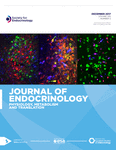Sperm tsRNAs and acquired metabolic disorders
- 1CAS Key Laboratory of Nutrition and Metabolism, CAS Center for Excellence in Molecular Cell Sciences, Institute for Nutritional Sciences, Shanghai Institutes for Biological Sciences, Chinese Academy of Sciences, Shanghai, China
- 2School of Life Science and Technology, ShanghaiTech University, Shanghai, China
- Correspondence should be addressed to Q Zhai; Email: qwzhai{at}sibs.ac.cn
Abstract
Many findings support the hypothesis that metabolic changes associated with environmental factors can be transmitted from father to offspring. The molecular mechanisms underlying the intergenerational transmission of metabolic changes remain to be fully explored. These acquired metabolic disorders in offspring may be partially explained by some potential epigenetic information carriers such as DNA methylation, histone modification and small non-coding RNAs. Recent evidence shows that sperm tRNA-derived small RNAs (tsRNAs) as a type of paternal epigenetic information carrier may mediate intergenerational inheritance. In this review, we provide current knowledge of a father’s influence on metabolic disorders in subsequent generations and discuss the roles of sperm tsRNAs and their modifications in paternal epigenetic information transmission.
- Received 16 June 2016
- Accepted 22 June 2016
- Made available online as an Accepted Preprint 1 September 2016
- © 2016 Society for Endocrinology











